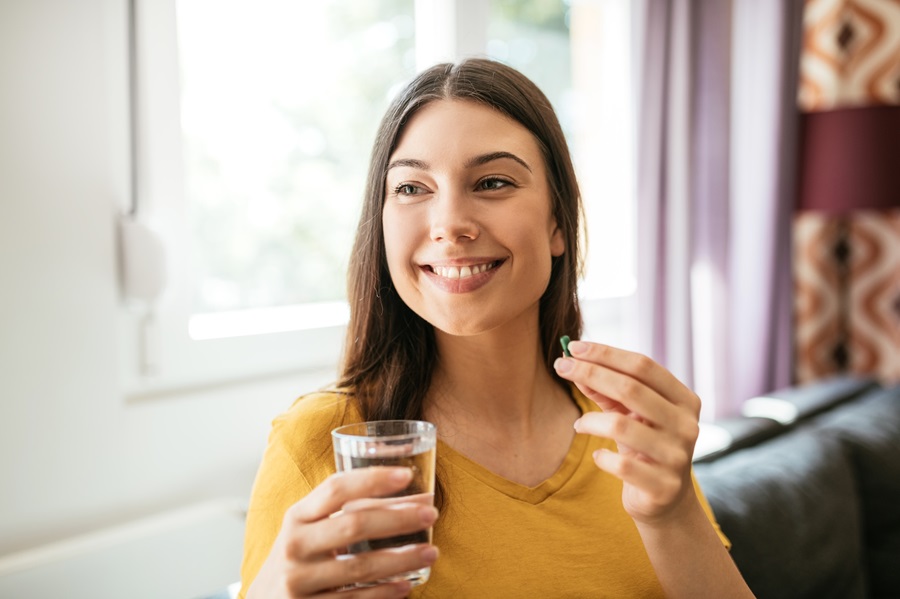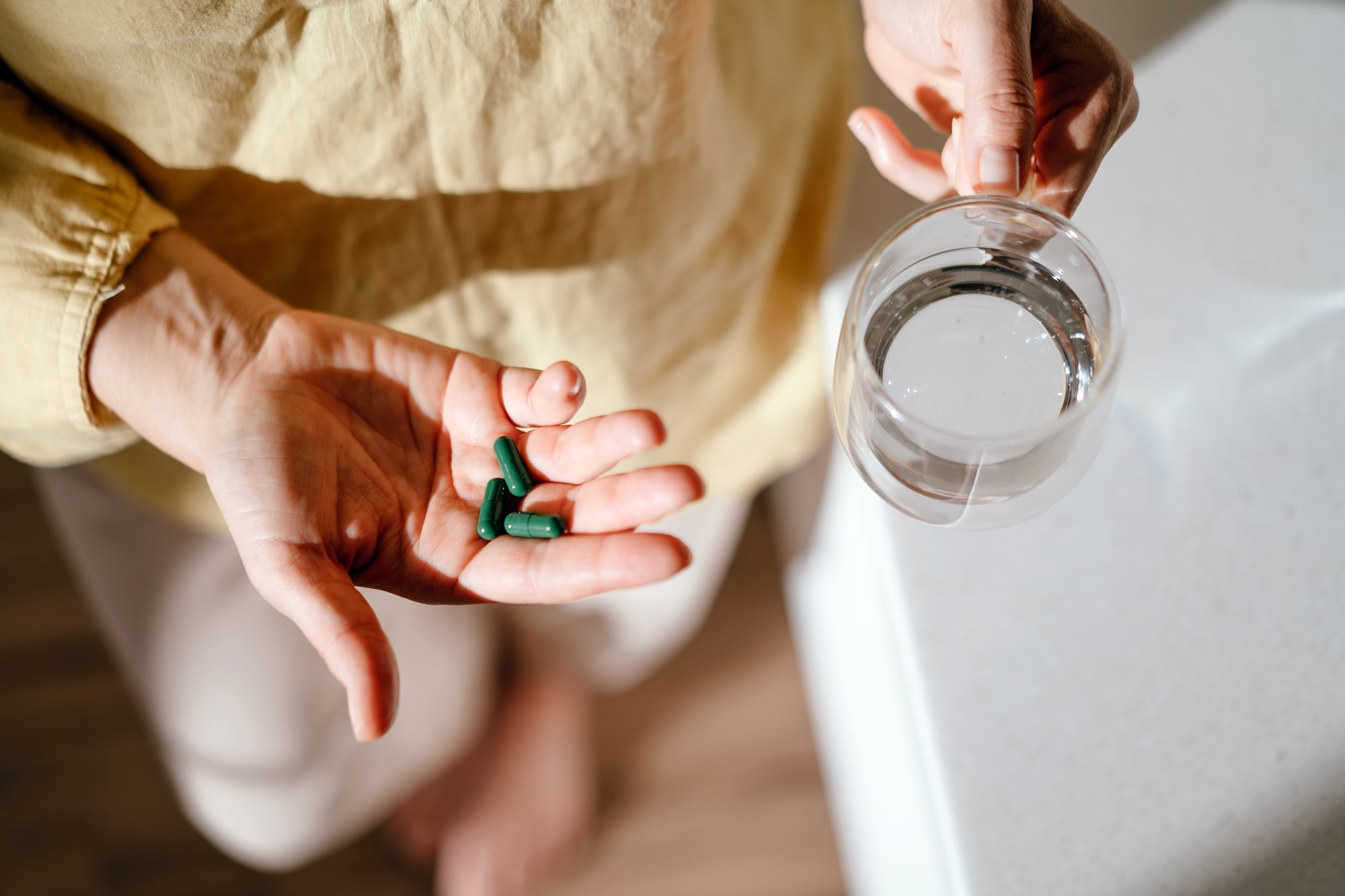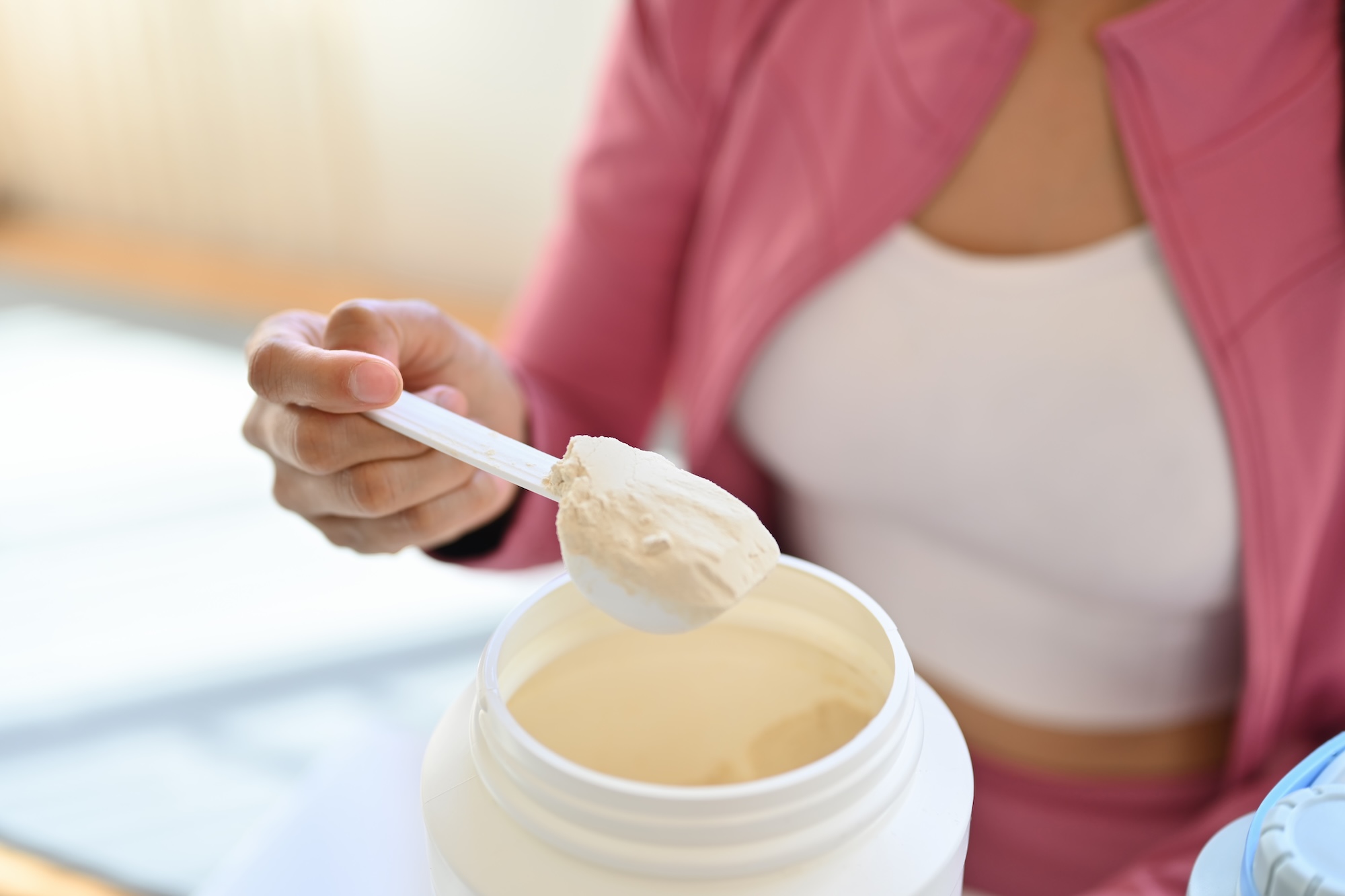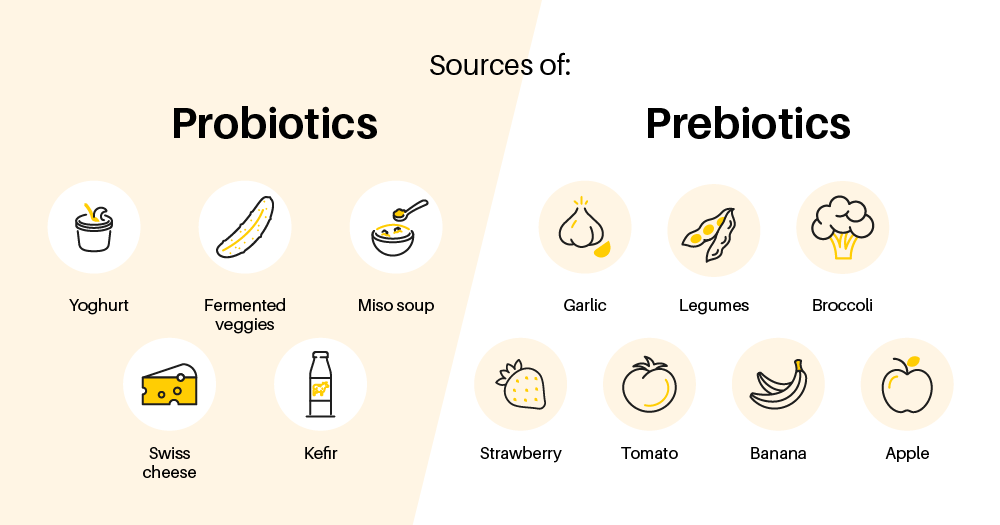- Home
- Mind & body
- Immunity trends, are they worth the hype?
At CBHS we help you manage your health challenges. We believe in offering you the services, support and tools you need to live your best life.
Health and Wellness Programs are available to support eligible members towards a healthier lifestyle. Each Health and Wellness Program is subject to its own eligibility criteria.
Contact us for more information and to confirm your eligibility for a program.
Immunity trends, are they worth the hype?

The health and wellness industry is constantly growing. Globally, it was worth over $4.4 trillion USD back in 2020 and is expected to reach nearly $9 trillion USD by 2028.
Weight loss, personal beauty and nutrition make up the largest figures. Nowadays, we’re constantly bombarded with information and sometimes it can be tricky to tell what’s true or what’s not. ‘Wellness’ products are no different. There’s always a new trend promising to cure all our problems, often with no or very little scientific research supporting its claim.
According Innova’s 360 research the interest in immune system health is likely to stick around, as consumers tend to focus on ‘Prioritising prevention’. Our immune system should be looked after all year round. But, what trends are worth our money? Here’s some food for thought.
Ginger shots, juice cleanses, collagen, supplements…do they really work?
Products that boost our immune system are in high demand in Australia and around the globe, suggesting that immunity is still front and centre in most people’s minds. A recent Innova survey found that 39% of supplement users take them to support their immune system—making it the second most common reason for supplement use, just behind maintaining overall health.
Let us help you separate the real deal from the ‘not-worth-the-hype’…or your money!
Supplements
Supplements should only be used, as the name suggests, in supplement to a healthy, balanced diet. Considering a food-first approach to fuel your body with vitamins and nutrients is always recommended.
Each day, we should aim for:
- two serves of fruit
- five serves of vegetables
- 4-6 serves of wholegrains
- 2-3 serves of low-fat dairy and alternatives
- around three serves of lean protein
- small amounts of healthy fats, and
- limited or reduced highly processed foods
Following those recommendations every day will help your body get all the nutrients and vitamins you need while maintaining a healthy and balanced diet.
Before deciding to take supplements, consult with your GP and ask for a blood test to help check if you’re deficient in any vitamins or minerals. If needed, your GP will be able to recommend the correct supplement and dosage to support your diet.
In short, supplements can be of great help to specific groups of people, when recommended by their health practitioner. For example:
- Vegans who struggle to get vitamin B12
- Women before and during pregnancy, as folate supplements reduce the risk of neural tube defects and iron reduces the risk of anaemia
- People with disorders caused by a deficit of a vitamin or mineral, such as osteoporosis with vitamin D and calcium.

Collagen
Collagen is the most abundant protein in the body. It’s a major component of bone, skin, muscles, tendons, and cartilage. Most research about collagen is related to joint and skin health, while very little scientific research exists on its benefits to our immune system.
Randomised controlled trials on the other hand have found that collagen supplements do improve skin elasticity and play an important role in the skin structure and function. But more studies are needed for us to understand if commercially available collagen is truly helpful and safe for long-term use.
Collagen formation is reduced in mature skin. As we age, the biomatrix of our skin starts to collapse when the collagen scaffold loses its strength and stability. There are many factors that can accelerate this, like sunlight, smoking, environmental pollution, alcohol, and nutrient deficiency. When the elasticity of our skin starts to be compromised, lines and wrinkles start to show up.
Online searches for collagen have steadily increased since 2014, and it’s now one of the top-selling supplements. Although collagen is the most abundant protein in the body, the appeal of taking a pill that claims to deliver youthful benefits like skin, hair and nail health, continues to attract consumers.
While there is good evidence supporting the inclusion of collagen in our diet, we still don’t have enough scientific proof of its power towards our immune system.
The easiest – and cheapest way to include collagen in our diets is through foods like:
- Bone broth – also contains a range of minerals including calcium, magnesium, phosphorus, silicon, sulphur, and trace minerals that can help support overall health
- Berries, and vegetables such as broccoli – rich in vitamin C which helps the body build collagen
- Sardines or fish with bones
- Chicken with skin-on
- Eggs – the whites in particular contain amino acids which are necessary for collagen production.

IV drips
With clinics and ‘drip bars’ popping up all over Australia, clientele are seeking IV fluids on demand, to cure hangovers, fatigue, dehydration, food poisoning, jet leg, and even to gain a supposed ‘instant healthy glow’ for skin and hair. Commonly known as ‘IV vitamin therapy’ this ‘treatment’ became popular by claiming 100% absorption of vitamins and minerals, which are deposited straight into your bloodstream.
While IV treatments can be helpful in a clinical setting, a 2020 study concluded that there was insufficient evidence to recommend their use outside of this setting. This is not to mention they are very expensive, with some treatments in Australia costing well over $200 a drip! While patient empowerment is generally a good thing, IV fluids on demand may not be the best example.
“IV infusion treatments are increasingly being offered across Australia, however the medical justification and scientific evidence for them has not kept pace with their marketing,” AHPRA CEO Martin Fletcher said.
“Clinics charging hundreds of dollars for cocktails promising everything from boosting immunity, clearer thinking, beauty, and even anti-aging, need to be honest with their clients about the lack of scientific evidence supporting their infusion services,” Martin explains further.
IV therapy is an invasive procedure that carries some risks. Side effects may include bruising, bleeding, and swelling at the insertion site. Some vitamins can actually be harmful to the body in larger amounts than we need. There is also the risk of cross-contamination, especially as these clinics are unregulated in Australia. It’s best to receive IV therapy in a hospital with trained medical specialists and only when advised by your doctor.
The University of Queensland's School of Public Health also vocalised their verdict: "Don’t believe the hype…While it sounds logical that consuming more of a good thing would be good for you, research shows this is not necessarily the case… Most of us are far better off trying to get vitamins and minerals by eating a balanced diet with a wide variety of vegetables and fruits. It’s also much easier, cheaper and safer."

Ginger shots and juice cleanses
Let’s start with ginger shots. A popular spice, ginger has been proven to reduce inflammation in our body. In addition, other common ingredients found in ginger shots, like lemon and turmeric, have strong anti-inflammatory and antioxidant properties. However, we should be mindful when buying or making ginger shots as some can have sugar and other additives that the body doesn’t need. It’s important to note that ginger shots are not a magic fix and should be taken alongside a balanced diet.
On the other hand, juice cleanses are a different beast. Limited studies on juice-based diets have shown benefits such as weight loss. But once returning to a regular diet the benefits reversed. Of course, juice diets are unsustainable long-term for a range of reasons.
Detox' products are often marketing as having the power to boost immunity. So, the idea of 'detoxifying' our body by drinking juices for example, might seem like a good idea. But in truth, our body already has its own built-in natural detoxifier – the liver. It cleanses the body of toxins and produces bile to support healthy digestion.
Celery juice trends and so on, claiming to detoxify the body are not proven to work. Plus, when you juice a fruit or a vegetable, you lose the fibre and are left with the sugar. So, should you drink juice at all? If you enjoy the taste, go for it. A small serving of fruit or vegetable juice is not harmful. But should you be drinking glass after glass as a ‘cure-all’ for your health problems and to ‘detoxify’ your body? No.
Prebiotics
Your gut does more than just digest food — it also plays a big role in your immune health. In fact, up to 80% of your immune cells live in your gut. Prebiotics help feed the good bacteria in your digestive system, keeping your gut microbiome balanced. And when your gut’s in good shape, your immune system is better at fighting off infections and knowing which bugs to ignore.
Most people know about probiotic foods – which contain good live bacteria that improve gut health and immunity. Probiotics are functional foods that can help our body fight infections, improve our health and even prevent chronic disease.
Now, prebiotics are the ones who feed the good gut bacteria. They contain fibre and carbohydrate food chains that feed and maintain healthy colonies. Prebiotics have been shown to improve a number of chronic and inflammatory conditions. And studies are still confirming their benefits towards bone health and calcium metabolism.
Prebiotic food includes garlic, onion, leeks, asparagus, Jerusalem artichokes, dandelion greens, green banana, and seaweed. A more general rule is to eat a variety of fruit and vegetables, legumes (such as beans, peas, and lentils) and wholegrains for dietary prebiotics daily.

So, what’s the verdict?
A food-first approach with dietary variety and balance can’t be replaced. And claims that sound too good to be true most likely are.
A healthy body and immune system are best achieved through a combination of good habits that we should be consistent with:
- Include colourful fruits and vegetables daily
- Steer clear of excessive sugar, white flour and reduce or cut out alcohol
- Reduce stress at work and at home. Stress hormones can weaken our immunity, make infections more severe and slow down wound healing
- Exercise regularly. Moderate-intensity exercise, on a regular basis, is beneficial
- Drink enough water daily, ideally eight to ten glasses. Water plays a crucial role in maintaining good health
- Get enough sleep. Your immune system repairs and rebuilds while you sleep.
While immune-boosting products may seem convenient, a healthy body is built with consistency. Keep these points in mind, and they will help you maintain a healthy immune system all year long.
All information contained in this article is intended for general information purposes only. The information provided should not be relied upon as medical advice and does not supersede or replace a consultation with a suitably qualified healthcare professional.
Sources:
https://globalwellnessinstitute.org/press-room/statistics-and-facts/
https://www.innovamarketinsights.com/trends/trends-in-immune-health-supplements/
https://www.cbhs.com.au/mind-and-body/blog/5-immunity-strengthening-foods-nutrients
https://www.health.gov.au/topics/food-and-nutrition/about/eating-well#
https://www.eatforhealth.gov.au/guidelines/australian-guide-healthy-eating
https://pmc.ncbi.nlm.nih.gov/articles/PMC6835901/
https://www.health.harvard.edu/blog/considering-collagen-drinks-and-supplements-202304122911
https://nutritionsource.hsph.harvard.edu/collagen/#
https://pmc.ncbi.nlm.nih.gov/articles/PMC7826851/
https://pmc.ncbi.nlm.nih.gov/articles/PMC10384337/
https://www.cbhs.com.au/mind-and-body/blog/5-immunity-strengthening-foods-nutrients#
https://www.ncbi.nlm.nih.gov/books/NBK567072/
https://www.ahpra.gov.au/News/2022-11-23-IV-treatments.aspx
https://pmc.ncbi.nlm.nih.gov/articles/PMC9654013/#
https://www.verywellhealth.com/turmeric-and-lemon-water-11719499
https://www.ncbi.nlm.nih.gov/books/NBK92752/
https://www.nccih.nih.gov/health/detoxes-and-cleanses-what-you-need-to-know
https://www.health.qld.gov.au/newsroom/features/detox-and-cleansing-diets-more-harm-than-good
https://www.cbhs.com.au/mind-and-body/blog/the-power-of-probiotics-and-prebiotics
https://www.cbhs.com.au/mind-and-body/blog/how-to-cut-down-sugar-and-read-food-labels
https://www.cbhs.com.au/mind-and-body/stress
https://www.cbhs.com.au/mind-and-body/blog/how-much-water-do-we-need
https://www.cbhs.com.au/mind-and-body/sleep-and-fatigue
https://www.cbhs.com.au/mind-and-body/blog/the-a-zzzzzs-of-sleep-your-guide-to-sleeping-soundly
https://pmc.ncbi.nlm.nih.gov/articles/PMC8001875/
https://www.newcastle.edu.au/hippocampus/story/2024/thinking-of-trying-a-detox
Health and wellbeing
programs & support
You Belong to More with CBHS Hospital cover:
- Greater choice over your health options including who treats you
- Get care at home with Hospital Substitute Treatment program
- Free health and wellbeing programs to support your health challenges
Live your healthiest, happiest life with CBHS Extras cover:
- Benefits for proactive health checks e.g. bone density tests, eye screenings
- Keep up your care with telehealth and digital options
- Save on dental and optical with CBHS Choice Network providers
